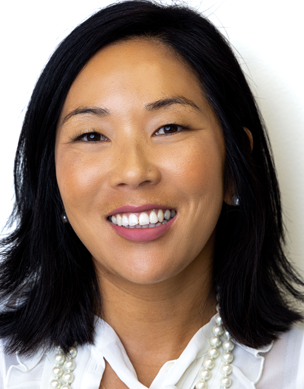One major topic that all families should become familiar with at the very beginning of a substance use disorder involves “The Three Cs of Recovery.” This concept can help you to align your feelings with reality, so you can be in a space to support your loved one who is struggling with substance use disorder, whatever that might look like.
When you have a family member or loved one who struggles with substance use disorder (SUD), it can be difficult to feel as if you must navigate their journey as well as your own emotions. As a family member, you are entitled to your feelings surrounding the situation, and feeling like you need to set them aside to support your loved one can be extremely conflicting. Family members of people with SUD certainly have their own unique struggles to address.
It is important to understand that you and your family are not alone. Substance use disorder is a challenge for many people, and there are families all over the world who know what you are going through. Finding a family education support group to bolster you as you navigate your feelings can be a helpful outlet and a way to assess the challenges you are experiencing.
The Three C’s to Addiction Recovery
The Three Cs is an extremely simple concept that puts substance use disorder into perspective for families. This set of three statements helps families understand three simple truths about their loved one's SUD and SUD in relation to family members.
Unfortunately, a lot of families believe that they have some level of control over their loved one’s substance use disorder, which can lead to significant disappointment, bitterness, and misunderstanding before and during recovery. The 3 Cs aim to remedy this common belief and allow families to settle into the reality of the situation.
Whether you are working with a professional or are just beginning to explore your role as the family of a person with an SUD, it is important to understand the 3 Cs and how they might apply to you. Remember these three principles.
I Did Not Cause It
The first of the three Cs is “I did not cause it.”
Living with or being close to someone with a substance use disorder can make family members and loved ones feel responsible for their loved ones’ behavior. Some people even begin to believe that they may have caused the disorder in some way. This kind of thinking can create an immense amount of guilt for family members, something that is neither encouraging nor helpful to the recovery process.
It is essential for loved ones to understand that there is no way that they could have caused a substance use disorder. While people believe that their decisions, words, or actions could have altered their loved one’s journey with controlled substances, in reality, this is impossible. There is nothing you can say or do that instigated your loved one’s substance use disorder.

SUDs are chronic illnesses that are outside of anyone’s control. Family members and loved ones are not the cause of an SUD.
I Cannot Cure It
The “I can cure it” mentality implies that substance use disorder is not a serious condition but rather a minor situation that a single person can fix. This is not the case. Substance use disorder is a serious and chronic illness that, while treatable, lacks a singular cure. For most people, it takes years of hard work and the help of a community to overcome active substance use disorder. Even then, SUD will always remain.
When you love someone, you may want to take away their pain or ensure that they never suffer. Though this is a nice thought, it is unattainable as well as unfair to both you and your loved one. Overcoming active substance use is a journey that requires effort on the part of the individual and is something that cannot be done by someone else. The healing journey is a highly personal process, so there is nothing that family members can do or say to “fix” the situation. Even if there were something you could do, “curing” your family member is robbing them of the ability to heal themselves and grow as a person.

Finally, it is important to note that substance use is not curable in the traditional sense. Though individuals frequently overcome the active parts of their disease, the condition is something that they will always live with. There is no cure, only treatment.
Suggested Reading: How Common Is Dual Diagnosis?
I Cannot Control It
Even if you are a close family member or friend, there is nothing that you can do to control substance use disorder. Some people have it, while other people do not. Who does and does not struggle with drugs and alcohol is not within your control.
One of the first things that people with substance use disorder learn in treatment programs is to release the issue to a higher power. Relinquishing the illusion of control is a key step toward acceptance, which is necessary for healing and recovery. If the person with the addiction themselves is not in control, then there is no way for you to be.

Not only is it impossible to control a person’s relationship with substances, but you also cannot control their behavior. You may believe that you can influence your loved one into acting a certain way in order to overcome their disorder, but their actions are and must be their choice. You are simply not capable of controlling what the person does or does not do.
However, this is not to say that you have no influence. You can certainly provide a good example for your loved one to stay away from negative influences and refrain from placing them in the path of temptation, but the actions you take are your own and are simply suggestions. You cannot make or force them to do anything, as you cannot control substance use disorder behaviors.
Ways to Help a Loved One with an Addiction

Though the three Cs are meant to help loved ones find clarity about their position, they can also inspire a sense of helplessness that can be difficult to manage. If you want to take action for your loved one in a healthy way, there are many things you can do.
Family Education Support Groups
One of the best things you can do for your loved one with a substance use disorder is to attend family support groups. These meetings help families to understand what their loved one is going through, and meet with other families on the same journey. Substance use disorders can be isolating for both the individual and their family, so being able to talk about your situation with others who understand can be an incredible relief.
These support groups may also give you an opportunity to learn about resources and tools that will help your family and your loved one to navigate this journey. Our facility recently hosted Brian Sabo, a Certified Family Recovery Specialist from Hope Center. This kind of community engagement and family support truly benefits our clients and their families.
Individual and Family Therapy
Substance use disorder can cause significant changes within a family unit. Roles are often altered or even reversed, which can cause emotional trauma and other difficulties. There may be increased violence or fighting, and family members often put their needs on the back burner to care for their loved one with an SUD. All of this can lead to mental health and self-esteem issues.
Seeing a therapist individually can be beneficial because it gives you an opportunity to work through your personal feelings rather than prioritizing someone else’s. When you see a qualified therapist, you may learn better ways to communicate and relate to your loved one with a substance use disorder, which can support both of you during this time.
Family therapy can also be helpful in repairing some of the family’s natural dynamics. As mentioned, substance use disorder often leads to role reversals, such as a child caring for a parent or one sibling caring for another. Siblings can feel neglected when their parents focus on the child with substance use disorder, a pattern that can easily continue into adulthood. Attending therapy together can help to identify these issues and work to resolve them.
Suggested Reading: Toxic Relationships and Addiction
Communication
Communicating is one of the most effective ways to support an individual with a substance use disorder. When they feel like they have someone to talk to and can rely on the communication methods around them, they have more tools to feel at ease in their environment. The same is true for you.
Communication also helps you to use methods that are tailored to your loved one. Though we can certainly make general suggestions, everyone with a substance use disorder is different. Your loved one’s needs are different than anyone else’s, and communication will accurately identify what they are.
Feeling heard and understood is extremely beneficial for those recovering from substance use disorder. Communication is key to that.
Patience
Though the waiting process can be frustrating, the recovery process does not happen all at once. In fact, it takes a long time for an individual with a SUD to feel as though they have overcome the worst of their condition. Relapses are common, as are setbacks and hard days. It is okay to feel disappointed when these happen, but it is important to extend patience to the situation.
Be sure to extend patience to yourself as well. Even with support and resources, being close to someone with a substance use disorder is difficult, and it is normal to question your choices and actions. Extend patience to yourself as you navigate a complicated situation.
Education
Though your loved one may share information with you, it can be extremely helpful if you do some research and learn on your own. Those in recovery are already processing a significant amount of information in addition to mental and physical health struggles, and trying to teach someone about the details of their disease can be exhausting. Many people feel as though they do not have the energy to properly explain their situation, even to the people closest to them.
Suggested Reading: Addiction Recovery Resources
Can Relationships Survive Substance Use Disorder?
Depending on the nature of your relationship with the individual with SUD, it is natural to wonder if a connection can survive substance use disorder and the recovery process. Fortunately, the answer is yes. It is entirely possible to maintain a relationship with someone in recovery. Your marriage, friendship, or close family connection is not doomed, but restoring it will take work.
It is important to note that your relationship may change as your loved one changes. On a basic level, they may be unable to participate in certain activities that you both used to enjoy, especially if they involved controlled substances or the presence of alcohol. Because of this, you may see them less frequently or find you need to alter the activities you participate in together.
For your relationship to survive, you will likely need to have some intimate discussions with your loved one, which can be uncomfortable if communication is difficult. They may need to make amends with you, and you may also have topics to discuss to re-establish trust and connection. However, family members often find that effort is worth the reward.
Practicing the 3 Cs
Putting the 3 Cs into practice is vital for your health and wellness, and it can support your loved one as well. Your goal during your loved one’s recovery is to find your peace. The best way to do this is by identifying patterns of thinking that go against these guidelines.
Look for times when you think or feel as though your behavior can change your loved one. Challenge feelings of guilt when they try to tell you that you are responsible for the SUD. Stop and recalibrate when you learn about a new technique, behavior, or product that promises a quick fix to your loved one's condition. Soon, the 3 Cs will become second nature to you and your family.
Recovery Cove Practices the 3 C’s of Recovery
The professionals at Recovery Cove are here to support your family as you navigate someone's SUD. Whether you are just beginning the process or have been living with SUD for some time, we are here to provide holistic, evidence-based care that addresses the entire person, not just the disorder. We work with families and individuals who are affected by substance use disorders and tailor each treatment plan to the unique situation at hand.
Our personalized addiction treatment program in PA has been helping those with SUD find recovery for many years. Our experience and expert techniques help support our clients and their families during the recovery journey. As we expand our services, we are proud to offer group therapy sessions and other resources for families of those with substance use disorders.
References:
- https://nida.nih.gov/publications/drugfacts/genetics-epigenetics-addiction
- https://www.ncbi.nlm.nih.gov/pmc/articles/PMC1852519/

Clinical Director
Christine Todd is a Licensed Professional Counselor and an Advanced Certified Drug and Alcohol Counselor who enjoys working directly with a population that struggles with addiction and mental health disorders. Christine brings many years of clinical experience to the team at Recovery Cove, where she is currently the Clinical Director. In her role, she oversees the clinical department as a leader, educator and mentor, designing programming and protocols for a diverse client population.




